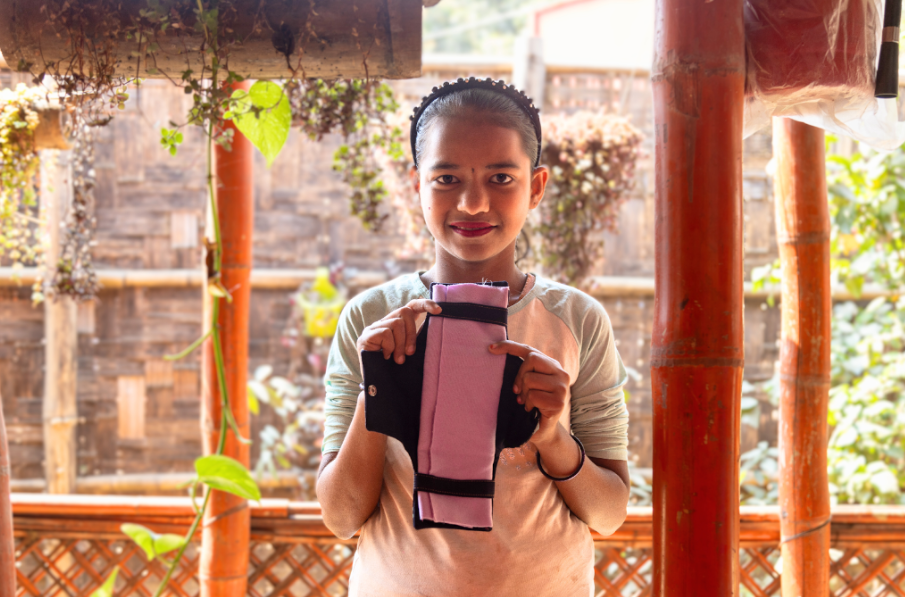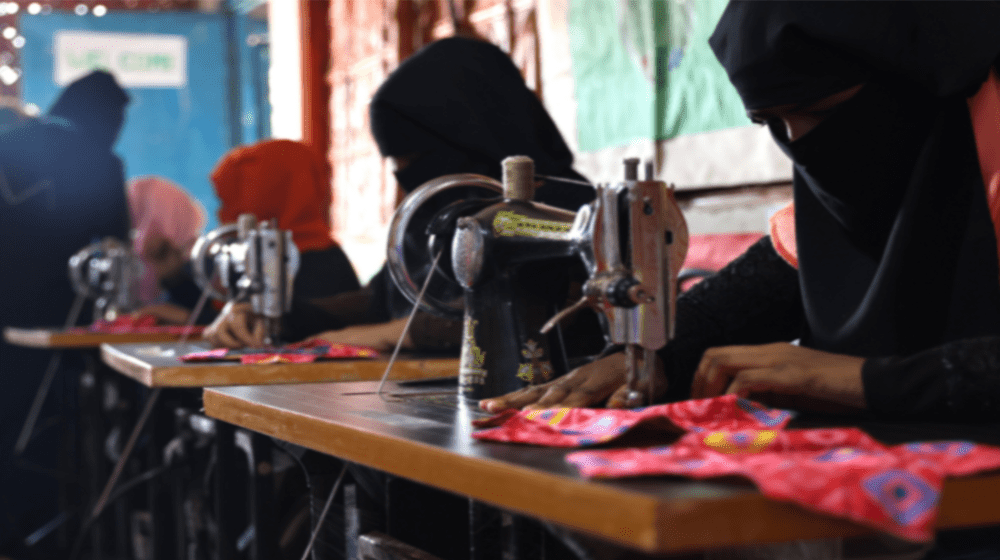
Sewing Reusable Sanitary Pads in the Rohingya Camps
In Cox's Bazar, Bangladesh, a remarkable initiative is transforming the lives of adolescent girls and women. Menstrual health and hygiene management, often overlooked in refugee and host communities, have taken centre stage through a programme initiated by UNFPA, thanks to the invaluable support from KOICA.
Recognizing the Urgency: Addressing Menstrual Health Challenges
In these densely populated camps, menstruation remains shrouded in taboos and misconceptions, presenting formidable obstacles to proper menstrual hygiene management. These challenges lead to unhealthy practices, increasing the risk of infections and long-term health issues. UNFPA, recognising the urgency of this issue, launched a programme focusing on self-reliance skills education, with a particular emphasis on reusable sanitary pad production.
The program's hands-on approach covers everything from sourcing materials to crafting pads with proper hygiene standards. It covers essential aspects such as materials, fabrics, and effective production techniques. Through this initiative, adolescent girls and women gain valuable skills that empower them to create sanitary pads that are not only cost-effective but also meet stringent hygiene standards.
“I learned how to make reusable sanitary pads, and now I can make them for my sisters”, says Minara, a Rohingya girl.
In its inaugural year in 2023, the initiative touched the lives of over 4,000 individuals, including 2,050 adolescent girls and 2,112 female caregivers, who actively participated in skill-building training sessions across camps and host communities, they successfully produced 5,470 reusable pads. Of these, 2,015 pads have been distributed to beneficiaries, while the remainder have been pre-positioned for emergency preparedness efforts.
Beyond Practicality: Paving the Way for Empowerment in UNFPA Youth Centres
The people we serve through this initiative see reusable pad-making as more than just a practical skill. It becomes a life skill that extends beyond personal needs. By mastering this art, they can save money, create thoughtful gifts for special occasions, and enable younger sisters to manage menstruation without financial constraints.
To support this initiative, a total of 8 UNFPA Adolescent & Youth Centers are equipped with sewing machines and skilled mentors have been enlisted to deliver self-reliance skills sessions. By recruiting and training mentors from communities, UNFPA not only addresses a practical need for menstrual health management but also empowers girls and women, fosters their economic independence, and engages with community members.
The success of this initiative would not be possible without the generous support from KOICA. Their commitment has enabled UNFPA to create sustainable solutions that go beyond immediate relief, fostering lasting changes in the lives of adolescent girls and women in Cox's Bazar.
In conclusion, the production of sanitary pads within the Youth Centres is not just about managing a biological process; it's about empowerment, education, and community building. UNFPA, with the support of KOICA, is not only addressing a critical need but also sowing the seeds for a more self-reliant and empowered future for women and girls in Cox's Bazar.



